August 24, 2022 – Spelling – How to Help
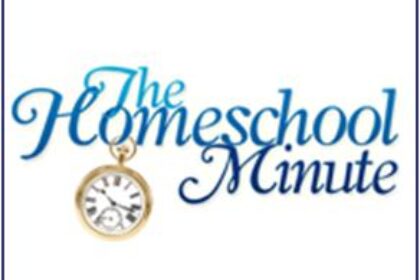

Spelling – How to Help
August 24, 2022
Deborah Wuehler
How Do You Spell Consistency?
Todd Wilson
Spelling – Let’s Start at the Very Beginning
Danika Cooley
Spelling, the Beach Way
Dara Halydier
Make Spelling Fun!
| Be sure to scroll to the bottom to enter the contest and see the freebies of the month! |
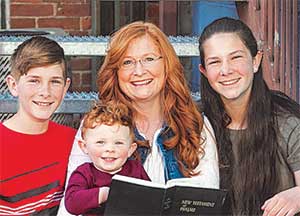
Mercy Every Minute
Deborah Wuehler, TOS Senior Editor
How Do You Spell Consistency?
Ever had a good reader who was a bad speller? Yes, I have, too! We read good books and have a good spelling curriculum, and they still struggle.
I have homeschooled for so many years, and I still don’t know if I am doing spelling right. What I have found is that no matter how wonderful the spelling program, each child I apply it to is very different. I have several natural spellers and a couple of children that just don’t get spelling, but they excel in other areas such as creativity, art, and music. And that’s okay. God’s fingerprints have uniquely designed each child for His purposes (Ephesians 2:8-10).
Success comes with the way they are created. Some are created natural spellers, and some are created naturally gifted at other things. One of the benefits of homeschooling is that you can cater to each child’s ability or developmental levels. If they need extra help in spelling, we have the time and most likely the resources to help.
What seems to work for me is a little word that does a big job in my home: consistency. A little here, a little there, five days a week, every month of every school year, and they grow up knowing how to spell anywhere from fairly well to decent to excellent, depending on how they are made.
These articles from fellow homeschoolers at The Old Schoolhouse® Magazine offer some more helpful hints:
The Spelling Apologist: Why Good Spelling is Essential and How to Select the Right Curriculum by Ellen Barski
Overcoming Spelling Hurdles by Karen J. Holinga, Ph.D.
Is Spell-Check Enough? by Dianne Craft
If you have a struggling learner of any kind, please visit Dianne Craft’s website, and you will also learn about those right-brained spellers. She has more amazing tips to share with you there.
Here’s praying that you are not stressing over a child needing extra help in spelling. Stress should be your signal to rest, pray, and find other helps. God consistently and faithfully answers our prayers for wisdom. Be consistent, and enjoy those children as you keep them Home. Where They Belong!
His love has no limits, His grace has no measure,
His power no boundary known unto men;
For out of His infinite riches in Jesus
He giveth, and giveth, and giveth again.
(Annie J. Flint 1866-1932 “He Giveth More Grace”)
~Deborah
Press play to build news literacy, critical thinking, and Biblical discernment.
Find a free sample episode right here.

Todd Wilson
Spelling – Let’s Start at the Very Beginning
For just a moment let’s pretend this isn’t summer and it’s OK to think about school. When you think about spelling, I go to the wise sage, Julie Andrews as Maria in The Sound of Music. I mean she hit the ball out of the park when she sang to those eager Von Trapp children, “Let’s start at the very beginning, a very good place to start. When you read, you begin with A – B – C.” I’ll edit the next part: when you spell you begin with C – A – T.
She and the kids went on to sing a wonderfully memorable song about learning music… but the lesson is the same when it comes to spelling: start simple and don’t expect too much. After all, as the good doctor, Todd, has said on more than one occasion, good spellers were created that way … as were the not-so-good spellers.
Go ahead and plug through those spelling lists of age-appropriate words. If they’re not reading or speaking the words, they shouldn’t have to spell them. Along with that, don’t rush your spellers. You won’t get better spellers by having your 3-year-old learn to spell the word dog.
OK we’ve spent way too much time thinking about school; it’s time to get back out there and enjoy summer!
Be Real,
Todd
About the author
Todd Wilson is a husband, dad, grandpa, writer, homeschool conference speaker, and former pastor. Todd’s humor and down to earth realness have made him a favorite speaker all across the country and a guest on Focus on the Family. As founder of The Familyman and The Smiling Homeschooler, his passion and mission are to remind moms and dads of what’s most important through weekly emails, podcasts, seminars, and books that encourage parents. Todd, and his wife Debbie, homeschool four of their eight children (the other four are homeschool graduates) in northern Indiana and travel America in the Familyman Mobile. You can read more at www.familymanweb.com.
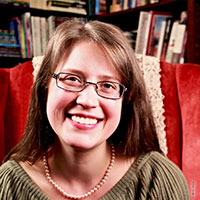
Danika Cooley
Spelling, the Beach Way
We moved from the city to the beach a few years ago. Imagine my surprise when I realized many stores don’t have set hours. They open and close according to their schedule, which is a mystery to the rest of us. Things are pretty laid back here. It’s the beach way of living.
Our first semester of homeschooling, I had curricula for every language arts subject. Each day we covered reading, writing, spelling, vocabulary, and grammar. I had something for everything.
It was a lot. So. Many. Workbooks.
Honestly, it lasted about a semester before my children and I were in turmoil. I didn’t want everyone to hate school. I especially didn’t want to hate school myself. In the end, nearly every subject we studied was learned about using a literature-based approach with notebooking.
We used textbooks for some subjects—like science, languages, and specific high school topics—but most of our time was spent reading and notebooking. The boys even read books in Spanish as we studied the language.
As my children read the Bible and good literature and read about history, math, and other topics, they naturally picked up vocabulary, grammar, and spelling.
There were times when I would casually correct their spelling. We would read through their notebooks and I would mention how we spell something. I sometimes talked about spelling rules and exceptions over lunch, and we would joke about the English language.
As the kids began using a word processor to turn in papers on history or literature each week in middle school, misspelled words were underlined and easily fixed. In high school, as my kids studied for a college writing CLEP test—CLEP tests are a great way to earn college credit in high school—they filled in a few grammar gaps.
My kids entered college with their literature and writing requirements covered. They scored well on tests. Learning to spell through reading literature was a natural way to pick up a vital life skill.
It was the beach way to learn. Less stress for them, less stress for me, but we got it done.
About the author
Danika Cooley is the author of Help Your Kids Learn and Love the Bible (Bethany House) and Bible Road Trip™, a three-year Bible survey for preschool to high school. An award-winning children’s author, Danika’s new line of Christian history is for 3rd to 5th graders (Who What Why Series, Christian Focus Publications).

Dara Halydier

Pillar of Future
Dara Halydier – Make Spelling Fun!
When I started homeschooling, I thought that if one could read, they could spell. Boy, was I wrong! Spelling uses a different neural pathway than reading. Spelling came easy to my visual learning style, but not so easy for my kinesthetic and auditory dyslexic/dysgraphic boys.
Spelling is important for future education, jobs, and even texting. One day, I texted my teenager, “Have you eaten dinner?” He said they had Lousanna. I assumed they had a friend over that I didn’t know. “Who’s Lousanna?” I texted. “Mom! We had the Italian food with the wavy noodles!” Of course, Lasagna.
How do you turn a spelling lesson into a form that your kids can learn? We spelled words while marching, jumping, and skipping, and sometimes even cartooned them. We wrote the words, saw the words spelled correctly, phonetically sounded out words, and laughed a lot!
When my kids reached age 13, they took a huge leap in spelling. We focused on words that were similar. I also kept a log of misread and misspelled words that we went over daily until they got them correct three days in a row.
This method brought them to adulthood. So now, if they’re ever stumped in the spelling of a word, they can ask their spouse, as they married good spellers. And if all else fails, there’s always spell check.
About the author
Dara Halydier is an author, speaker, and mom of five grown boys! She homeschooled for twenty-one wonderful years and is now encouraging other homeschooling families. She is the executive director of Abiding Truth Ministry and the author of the Practical Proverbs series and other books. Dara has learned life’s lessons the hard way—experience! The lessons she shares come from truths that she has learned from dealing with chronic pain, having moved thirty-three times, having four boys with learning disabilities, and having overcome a past of abuse to proclaim God’s grace, forgiveness, and freedom. Find out more at www.abidingtruthministry.com.

Fin-tastic savings are swimming your way! Begin your SchoolhouseTeachers.com membership today for only $199/yr. Sign up now and receive a free year and stylish new tote when using code: BOGO22. New members only. Sorry, no refunds. Totes are available in US only.
A division of The Old Schoolhouse®

SchoolhouseTeachers.com Corner
Did you know?
Every class is INCLUDED for ultimate members!
No limits.
Teaching spelling can seem like a daunting task, but it’s a necessary skill to practice. Get help with Schoolhouse Spelling from SchoolhouseTeachers.com where students from kindergarten to high school can enjoy activities like brief videos, spelling lists, worksheets, and puzzles that enable each student to learn spelling in a fun way. Try it today!
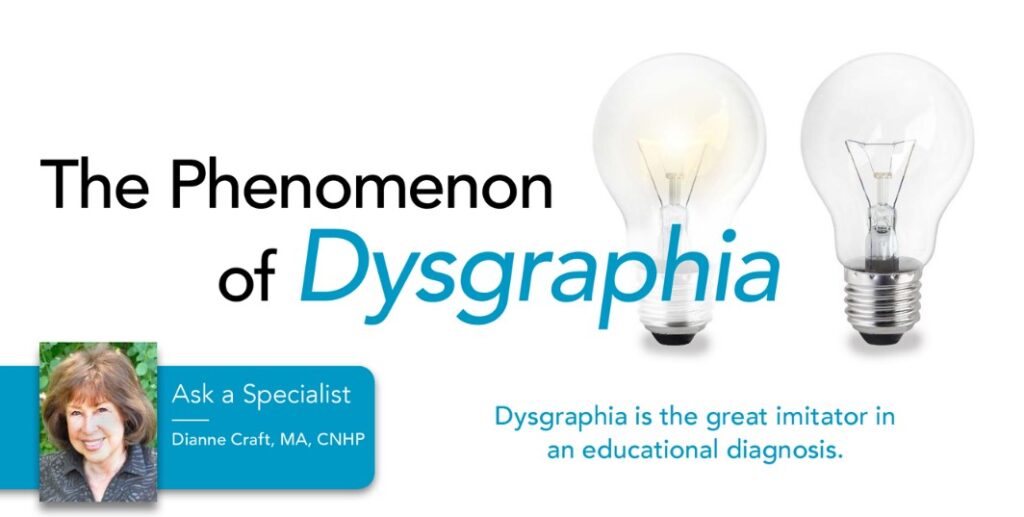
Read this article
in the summer issue of
The Old Schoolhouse® Magazine.

Take your homeschool back to the basics, back to the Bible, and back to what matters most with the “Homeschooling: You Are Not Alone” Supplement from The Old Schoolhouse® Magazine. Learn. Discover. Be inspired. Download your FREE digital issue. https://www.theoldschoolhouse.com/product/homeschooling-you-are-not-alone/


Congratulations to our June winner, Susanna Denninger of Charlotte, NC!
Contest Corner
for the month of August
His Vessel Algebra I Textbook
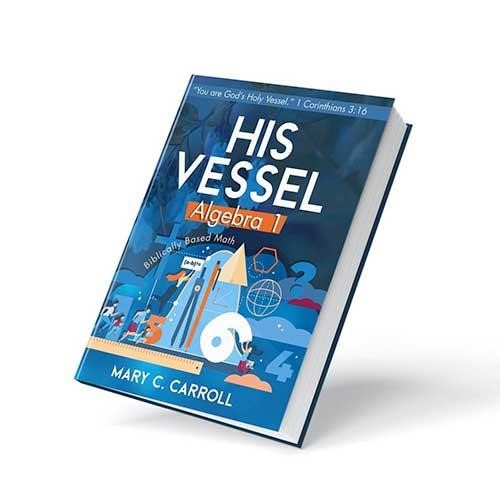
His Vessel Textbooks
http://www.hisvesseltextbooks.com/
At first sight, the His Vessel Algebra I textbook is like any other math book, except that it quotes 1 Corinthians 3:16 (“You are God’s holy vessel”) and says “biblically-based math” on the cover. But when you dive into the content, you will find Bible truths sprinkled throughout the book.
In Mrs. Carroll’s definitions of mathematical terms, she uses faith-centered mnemonics and encouragements all over the place. For example, when talking about Absolute Value in chapter 1, students are first told the definition of an absolute value number (distance from zero; no negatives). Then she says: “Isn’t it wonderful that God loves you so much that He sees your Absolute Value through Jesus Christ? You have Absolute Value.”
His Vessel Algebra I covers all the main topics you would expect from an algebra curriculum: expressions to equations, graphing to statistics, exponents to the quadratic equation, etc. The lessons are included in the book so your student can read and study the information to learn it. If a topic is challenging for your child to understand, they can also go to the His Vessel YouTube channel for video lessons.
This fully formed high school algebra curriculum is a giant book, hardcover with over 550 pages. It will get your student the Algebra I credit they need for graduation but with a strong faith-based backbone that you will not find in any other math book anywhere.
This is part of a review of His Vessel Algebra I Textbook from His Vessel Textbooks. Read the full review on our site which has more details and pictures.
Go to the contest page of our site where you can ENTER TO WIN this algebra textbook.
Freebies
Math Mammoth Data and Graphs

Get a free book from Math Mammoth! Math Mammoth Data and Graphs is a worktext that covers common statistical graphs and some related topics for grades 2–5. As a worktext, it contains both the instruction and the exercises and problems. The book starts with the easiest topics: reading and making bar graphs, pictograms, histograms, and various kinds of line graphs. Toward the end of the book, we study average (mean) and mode, and how these two concepts relate to line and bar graphs. Lastly, we study circle graphs.
This free product and more are found in our 2022 Freebie Directory: TOS Freebie Directory – The Old Schoolhouse®
FREE E-Book!
Eyewitness History: Hunger and the Great Depression
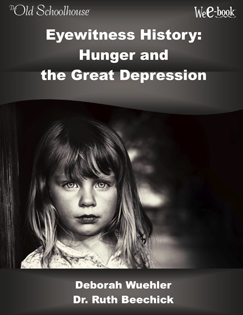
What was the Great Depression like? How did people survive during those years and World War II that followed? How did that generation develop the “never give up” spirit and pass it along to the following generation? Are there lessons we can learn today from the Great Depression?
Learn and reflect on the Great Depression and WWII with Eyewitness History: Hunger and the Great Depression –A WeE-book™ By Deborah Wuehler and Dr. Ruth Beechick.
Find more freebies at The Old Schoolhouse Homeschool Store: Freebies Archives – The Old Schoolhouse®

With the TOS Mobile App, search topics of interest spanning more than a decade, share articles, browse interactive content, and follow the links to hundreds of related resources. Each issue can also be downloaded and read offline.
Share this newsletter with a friend, and be sure to let those CONSIDERING homeschooling know about the enormous FREE info-pack which awaits them here: www.TryHomeschooling.com.
| We Want Your Feedback! |
| If you liked today’s Homeschool Minute, please email the editors and tell us what part you liked most. It’s a huge blessing to receive feedback! Please add publisher@theoldschoolhouse.com to your email contacts so that our emails to you don’t land in spam. |





